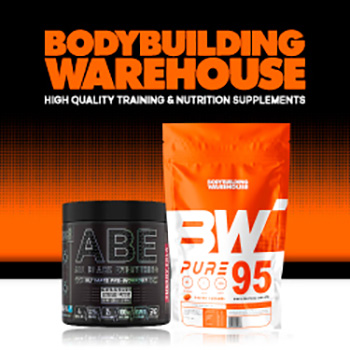
Main Points
- Elite athletes need a higher caloric and macronutrient intake than non-athletes. This usually includes daily protein needs of 1.6-2.2g/kg of body weight for optimal recovery and performance.
- Nutrient timing is crucial especially during the 30-minute post workout window. This can greatly improve recovery and adaptation to training stimulus.
- Nutrition plans differ greatly depending on the sport. Endurance athletes need more carbohydrates (7-10g/kg/day) compared to strength athletes who need a higher protein intake.
- Precision Nutrition offers personalized sports supplements guidance. This helps athletes optimize performance through personalized macronutrient ratios and timing protocols.
- Hydration strategies should be personalized based on sweat rate. Many elite athletes need structured protocols that include electrolyte replacement in addition to just drinking water.
The difference between being good and being great often comes down to what you eat. Elite athlete nutrition isn't just about eating healthy. It's about strategic fuelling that optimizes performance, speeds up recovery, and provides energy when it's most needed. From Olympic champions to professional sports stars, the world's top performers take nutrition as seriously as their training programs. They see food as functional fuel rather than just something to eat.
Elite nutrition plans differ from standard healthy eating in three key ways, precision, personalization, and periodization.
The stakes are incredibly high even minor nutritional changes can make the difference between standing on the podium or watching from the side lines. Let's break down the science backed strategies that fuel world class performance.
Food for Winners: The Real Diets of Elite Athletes
Let's put celebrity crash diets and Instagram food fads aside. Elite athletes eat with a specific goal in mind, focusing on sports supplements density rather than deprivation.
The basis of elite nutrition isn't about perfect eating it's about consistent fundamentals executed with discipline. Elite athletes prioritize whole, minimally processed foods that deliver maximum nutritional value with minimal inflammatory response. They view each meal and snack as an opportunity to enhance recovery, build strength, or fuel performance.
First and foremost, top-tier athletes recognize that nutrition is a very personal matter. What may benefit one winner could potentially harm another's performance. This customization isn't limited to just calories and macros, it also includes when meals are eaten, what foods are combined, and even the strategic use of supplements.
Mastering Macronutrients for Optimal Performance
Macronutrient Goals for Elite Athletes by Sport
Endurance: 60-70% carbs, 15-20% protein, 20-25% fat
Strength/Power: 40-50% carbs, 25-30% protein, 25-30% fat
Team Sports: 50-60% carbs, 20-25% protein, 20-25% fat
Combat Sports: 45-55% carbs, 25-30% protein, 20-25% fat
Note: These percentages may change based on the athlete's training phase and individual needs.
For elite athletes, macronutrients are not just sources of energy they are powerful tools that can be used strategically to drive specific physiological changes. While the average person might focus on cutting carbs or boosting protein, athletes adjust their macronutrient ratios with incredible precision based on their training demands, body composition goals, and performance needs.
Research into sports supplements shows that athletes burn a lot more daily energy than non-athletes and need special nutrition to help their muscles repair and adapt. This means that it's not easy to get not just enough, but the best nutrition without a structured plan. Many top athletes carefully track what they eat and drink, and change their nutrition plans based on feedback from training and performance measurements.
Protein Needs for Muscle Recovery
Here are some strategies and tips for protein consumption for elite athletes:
- Most elite athletes build their protein strategies around complete proteins that contain all essential amino acids. These include meat, fish, eggs, and dairy.
- To trigger maximum muscle protein synthesis, elite athletes consume leucine rich foods. These include whey protein, chicken breast, and lean beef.
- Athletes who follow plant based diets combine complementary protein sources. This ensures they get complete amino acid profiles.
- Collagen protein supplements can support connective tissue health and prevent injuries.
- Consuming casein protein before bed can extend recovery during overnight fasting periods.
Many elite athletes consume protein immediately after training. Ideally, this should be within 30 minutes. This is when muscles are most receptive to nutrients. This strategy maximizes the anabolic response to training. It also accelerates recovery between sessions. For athletes who train multiple times daily, this recovery window is even more critical. It helps maintain the quality of their performance.
Carb Loading for Peak Performance
Carbohydrates are the key to high energy performance, with elite athletes eating a lot more than the average person. When training hard, endurance athletes often need to eat 7-10g of carbs per kilogram of body weight, while strength and power athletes may aim for 4-7g/kg. By eating this many carbs, athletes can make sure their muscles have all the glycogen they need for tough workouts or competitions.
Top-tier athletes are not only concerned with the amount of carbs they consume. They also pay close attention to when and what type of carbs they eat. Many use carb cycling strategies that match their training needs, eating more on heavy training days and less on rest days. They save fast digesting carbs for before, during, and after workouts, while slower digesting, fibre rich carbs provide energy for the rest of the day. For more insights on how athletes manage their diets, check out this guide on sports supplements.
Intentional Fat Consumption for Stamina and Healing
Despite old fashioned sports nutrition counsel, beneficial fats are key to top level performance. Good fat sources help produce hormones, decrease inflammation, and offer lasting energy for less intense actions. A lot of endurance athletes now purposely include medium chain triglycerides (MCTs) and omega-3 fatty acids to improve fat burning and healing.
What sets elite nutrition plans apart is the focus on the quality of fats rather than just the amount. Omega-3s from fatty fish, monounsaturated fats from avocados and olive oil, and saturated fats from sources like coconut are often the basis of these diets. Most nutritionists who specialize in performance recommend that fats make up 20-35% of an athlete's total calorie intake, but this can vary depending on the person's metabolism and the requirements of their sport.
How to Change Your Macros According to Your Training Phases
Top athletes plan their nutrition just as carefully as they plan their training. When they are in a high volume training phase, they consume a lot more carbohydrates to support the quality of their training and their recovery. As a competition gets closer, many athletes start a strategic carbohydrate loading protocol while keeping their protein the same or slightly increasing it to protect their muscle mass.
On the other hand, during the off season or maintenance periods, many athletes slightly cut back on carbohydrates while keeping protein levels steady to support their body composition goals. This nutritional periodization makes sure that the sources of fuel match up perfectly with the demands of training throughout the season. The most successful athletes see nutrition as a dynamic system that changes with the requirements of training rather than a static meal plan.
Unlocking the Power of Meal Timing for Athletes
What you eat is of course critical, but when you eat can also play a significant role in enhancing performance. Elite athletes don’t just stick to meal plans they follow carefully crafted fuelling schedules to ensure they have enough energy during training and can recover quickly afterward. This nutrient timing strategy gives them a metabolic edge that can greatly affect their performance.
Studies have found that timing your nutrient intake can help replenish glycogen, decrease muscle protein breakdown, and create optimal hormonal environments. Most high performing athletes eat 4-6 meals a day, spread out evenly to keep their energy levels and nutrient availability steady. This approach to eating regularly helps avoid energy crashes and provides a constant supply of recovery nutrients.
What to Eat Before Your Workout and When to Eat It
Usually, the pre-workout nutrition of top athletes follows a reducing timeline protocol. They will eat a full meal containing complex carbs, quality protein, and moderate healthy fats three to four hours before training. As they get closer to training (60-90 minutes away), their meals will become smaller and simpler, focusing mainly on easily digestible carbohydrates with little fat and fibre to prevent stomach upset.
Many top athletes have found ways to ensure they have enough energy for morning training sessions without having to wake up extra early. They might eat a dinner high in carbohydrates the night before, have a specific routine for what they eat before bed, or drink a liquid breakfast 30-60 minutes before they start training in the morning. They do this so they can start training with the most energy possible, without feeling any digestive discomfort. For more insights, check out this guide on sports nutrition.
Fuelling Strategies During Exercise
For workouts that last longer than 60-90 minutes, elite athletes use a strategic approach to fuelling during the workout to maintain their performance. Depending on the intensity and duration of the exercise and the individual's tolerance, carbohydrate intake during exercise usually ranges from 30-90g per hour. Many use a mix of sports drinks, gels, and food sources that are easy to digest to keep their blood glucose levels steady and to conserve muscle glycogen.
Studies have shown that by consuming a mix of transportable carbohydrates (a combination of glucose and fructose sources), athletes can increase their absorption rates and improve their performance during long periods of exercise. Top endurance athletes often rehearse their nutrition strategy during training to reduce gastrointestinal discomfort and perfect their personalized fuelling plan before big competitions.
The Importance of the 30-Minute Post Workout Recovery Window
The post workout recovery window is one of the most crucial times for nutrition for elite athletes. Right after working out, the body is more receptive to insulin and better at nutrient partitioning, which makes it easier to restore glycogen and synthesize protein. Most elite athletes eat a recovery meal with a 3:1 or 4:1 carbohydrate to protein ratio within 30 minutes of completing intense workouts.
For athletes who train multiple times a day or compete in tournament formats with little time to recover between performances, quickly refuelling their bodies is especially important. Many use specially formulated recovery shakes that contain fast digesting proteins (such as whey isolate) and high glycaemic carbohydrates to speed up the recovery process when eating whole foods isn't immediately possible.
Evening Eating for the Best Recovery
Sleep is the best way to recover, and elite athletes make the most of this recovery time with planned evening nutrition. Many of them have protein heavy dinners or take pre-sleep supplements with slow release proteins like casein to give a steady release of amino acids all night. This method helps stop the muscle breakdown that can happen during the overnight fasting period.
Aside from protein, many athletes use tart cherry juice, collagen sports supplements, or turmeric based anti-inflammatory compounds to improve recovery during sleep. The aim is to create the best internal environment for repair and adaptation while the body is at rest. These evidence based night time nutrition strategies have been demonstrated to speed up recovery and prepare for future training sessions.
Nutrition Plans Tailored for Each Sport
There's no such thing as a universal elite nutrition plan. The metabolic needs of a marathon runner are vastly different from those of an Olympic weightlifter or a professional soccer player. The best nutrition plans take into account these sport specific needs and create custom plans that support the unique energy systems and recovery needs of each sport.
The most successful nutrition plans are those that align perfectly with an athlete's training regimen, competition schedule, and physiological needs. While certain nutritional principles are consistent across sports, the application including macronutrient ratios, meal timing, and supplementation protocols can vary greatly depending on the demands of the sport.
The Nutrition Plan for Endurance Athletes
Endurance athletes need a lot more carbohydrates than other athletes, often eating 8-12g/kg of body weight during peak training times. This focus on carbohydrates helps meet the high glycogen needs of long training sessions and stops the mid session energy crashes that can ruin performance quality. Many use carbohydrate periodization strategies that align intake with training volume and intensity throughout their competitive season.
Effective endurance nutrition also focuses on using fat strategically to conserve glycogen stores during longer events. Many top endurance athletes use “train low, compete high” protocols where they sometimes train in a state of glycogen depletion to increase fat oxidation capacity, but always compete with fully loaded glycogen stores. This metabolic flexibility allows for sustained performance across varying intensities and durations.
Nutrition Strategies for Team Sports
Team sports athletes have specific nutritional needs due to the combination of endurance and power demands of their sports, as well as the variable nature of their competition schedules. They need a nutrition plan that supports both the explosive power needed for sprints, jumps, and changes of direction, as well as the endurance needed for sustained play. The most effective nutrition strategies for team sports typically focus on ensuring adequate carbohydrate intake around training sessions, while also maintaining a consistent protein intake to support recovery between frequent competitions.
Team sports often follow a specific timeline for game day nutrition. Pre-game meals are usually consumed 3-4 hours before the game. These meals typically contain moderate amounts of protein, high amounts of carbohydrates, and low amounts of fat and fibre. During the game, many athletes use carbohydrate mouth rinsing, strategic hydration protocols, and halftime refuelling strategies to maintain their performance throughout the entire game. After the game, recovery nutrition begins immediately to prepare for the next training session or game.
How Top Athletes Stay Hydrated
Water is more than just important for top athletes it's absolutely necessary for them to perform at their best. Even slight dehydration (2% body weight loss) can greatly affect cognitive function, strength, power output, and endurance capacity. Top athletes don't leave hydration up to chance, they have systematic hydration plans in place to keep their fluid balance optimal before, during, and after training.
Top performing athletes understand that staying hydrated is a full time job, not just something to think about during a workout. They often keep track of their hydration levels by weighing themselves in the morning, checking the colour of their urine, or even using refractometers to test the specific gravity of their urine. This approach, which relies on hard data, allows them to adjust their fluid intake each day based on concrete measurements instead of how thirsty they feel, which often doesn't accurately reflect how much hydration they need. For more insights on hydration and nutrition, check out this article on sports nutrition guides.
Find Out How Much You Sweat
Top notch athletes are aware of how much they sweat the amount of fluid they lose each hour while exercising in various weather conditions. This individualized measurement allows for exact hydration planning rather than general suggestions. To figure out your sweat rate, weigh yourself before and after you exercise (taking into account the fluid you drank and how much you urinated) to find out how much fluid you lose each hour.
Once they have a handle on their needs, athletes can create personalized hydration plans that are tailored to their needs, instead of adhering to one size fits all guidelines. Some athletes who sweat a lot may lose 2-3 litres per hour during intense workouts in hot weather, and they will need to hydrate much more aggressively than athletes who don't sweat as much. This tailored approach helps athletes avoid the performance issues that come with dehydration and the potential dangers of drinking too much water.
Hydration: More than just H2O
Top-tier athletes understand that hydration is not just about drinking water. It's about replenishing electrolytes to ensure cells are functioning at their best. Losses of sodium, potassium, magnesium, and calcium through sweat can lead to muscle cramps, decreased mental function, and reduced performance. Many athletes use electrolyte formulas that are customized to the makeup of their sweat. Sweat can be analysed through specific sweat tests.
Endurance athletes and those competing in hot environments have a particularly high need for sodium. While standard sports drinks do contain some electrolytes, many elite athletes require more concentrated electrolyte solutions based on their sweat sodium concentration and total fluid losses. Some even use sodium preloading protocols before competitions in hot environments to expand plasma volume and delay dehydration.
Hydrating Before the Big Game
For the 24-48 hours leading up to a competition, it's crucial to stay hydrated to perform at your best. Many elite athletes follow a strict hydration plan during this time to make sure they're fully hydrated when the competition starts. This usually means drinking extra fluids with electrolytes and keeping an eye on the colour of their urine to make sure they're absorbing the fluids properly.
When they have competitions in the morning, a lot of athletes use a “sleep hydration” strategy. They drink extra fluids with electrolytes before going to bed, but they're careful not to drink too much because they don't want to have to get up to go to the bathroom and interrupt their sleep. When they wake up, they keep drinking fluids at a measured pace. Many of them use the urine colour chart method to make sure they're as hydrated as they need to be before the competition starts.
Here are some tips and tricks from the pros that you can start using today.
1. Eat Enough Protein
Protein is essential for muscle repair and growth, and elite athletes need more of it than the average person. The American College of Sports Medicine recommends that athletes get between 1.2 and 2.0 grams of protein per kilogram of body weight per day. That’s a lot of protein!
2. Don’t Forget About Carbs
While protein is important, it’s not the only thing athletes need to be eating. Carbohydrates are the body’s preferred source of energy, and they’re especially important for endurance athletes.
3. Stay Hydrated
Dehydration can seriously impact an athlete’s performance, so it’s important to drink enough water.
4. Time Your Meals Right
When you eat is just as important as what you eat. Eating a meal 2-3 hours before a workout can help ensure that you have enough energy to get through it. And eating protein and carbs after a workout can help speed up recovery.
5. Listen to Your Body
Everyone is different, so what works for one athlete might not work for another. It’s important to listen to your body and adjust your diet as needed.
Remember, proper nutrition is just one part of a successful training plan. You also need to be getting enough sleep, managing stress, and staying active. But by incorporating these tips into your routine, you can help give yourself an edge over the competition.






